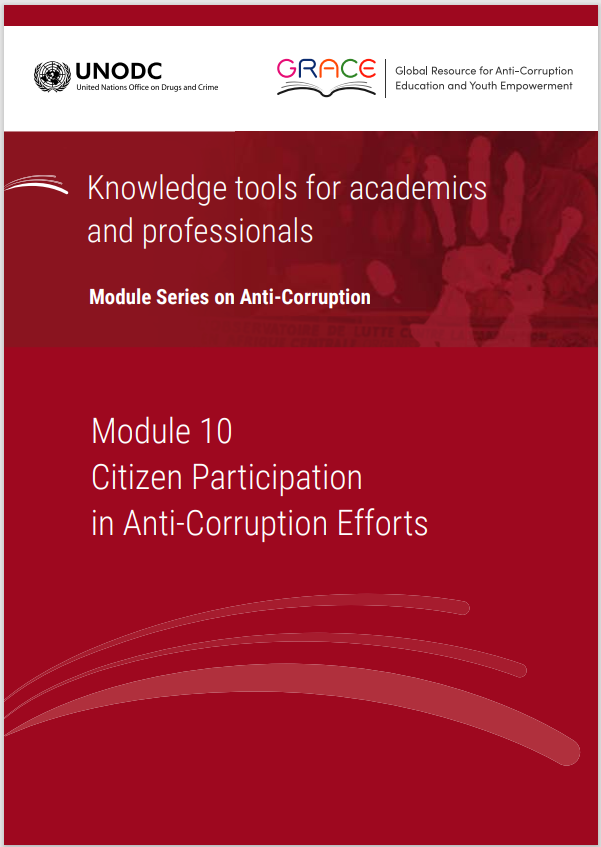This module is a resource for lecturers
Government obligations to ensure citizen participation in anti-corruption efforts
The United Nations Convention against Corruption (UNCAC) provides the foundation for citizen participation in anti-corruption efforts in article 13(1), which requires States parties to "take appropriate measures to promote the active participation of individuals and groups outside the public sector, such as civil society, non-governmental organizations and community-based organizations, in the prevention of and the fight against corruption". Further to this, the article requires States parties to provide avenues for public participation in decision-making, as well as to protect the activities of (mainstream) investigative and citizen journalists subject to the rule of law. To operationalize the obligations under article 13, States can take a number of complementary measures. These include fulfilling the public reporting obligations under article 10 of UNCAC, which requires a State "to enhance transparency in [its] public administration, including with regard to its organization, functioning and decision-making processes, where appropriate". It also includes maintaining a robust freedom of information regime, providing citizens and civil society with the information needed to fight corruption, and ensuring that there is an enabling environment for the registration and functioning of civil society. The last measure requires the State, at a minimum, not to act in a way that represses or obstructs the work of citizens, CSOs and the media in their anti-corruption efforts.
These international law obligations are critical in helping to foster social empowerment (i.e. the capacity to produce the desired changes in society), by removing the knowledge and resources barriers that citizens can encounter when seeking to engage in anti-corruption efforts. Of course, these cannot exclude government repression of activists and control of the media - which not only undermine anti-corruption efforts but also place the lives of citizens at risk. For a further discussion of these issues, see for example the CSIS report, which focuses on CSOs specialized in human rights advocacy.
 Next:
Conclusion
Next:
Conclusion
 Back to top
Back to top
